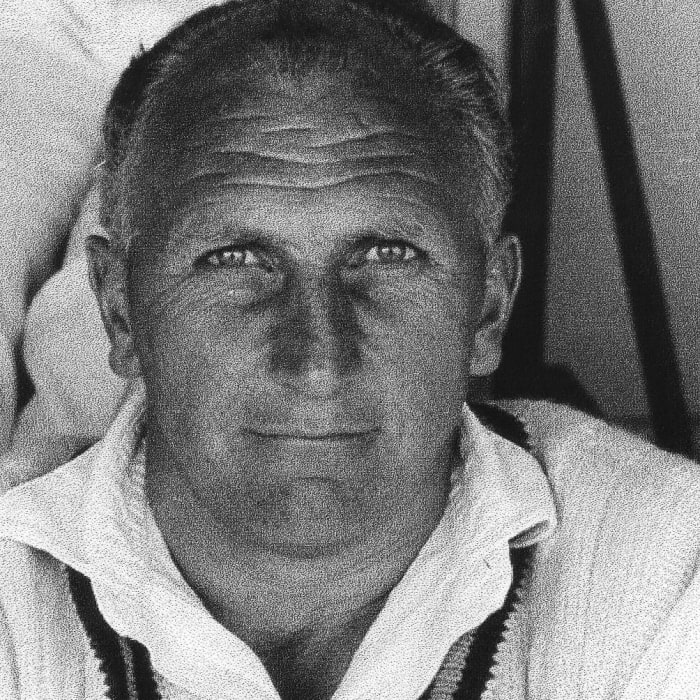
By Michael Carey
When David Halfyard jogs up to bowl, his opponent can be forgiven for expecting to hear the rattle of bones instead of the hum of a cricket ball. Even his Nottinghamshire team mates are pleasantly surprised at the way he continues to get good batsmen out, for to all intents and purposes Halfyard's career should have ended seven years ago.
It was then that they pulled him from his bubble car on the outskirts of Weston-Super-Mare where he was to play for Kent against Somerset. His left leg was broken, the knee ligaments were gashed, his right toe was dislocated, a vein in his right hand was severed, three ribs were broken and his face required 30 stitches.
Now at 38, his cheerful lived-in face and medium-paced bowling command respect throughout the county cricket circuit. Since his come-back with Nottinghamshire started last year, he has not missed a match of any sort and his captain, Brian Bolus, admits that it is easier to get Halfyard on to bowl than it is to get him off.
Halfyard's courage in adversity should be noted by those who develop sore spinning fingers or mysterious twinges when their analysis takes on an unhealthy pallor; it might also serve as some encouragement for his summer’s more distinguished invalids. After his accident he spent almost a year in plaster and eventually worked his way back to fitness by bathing the injured leg in the sea and running on the beach at Mevagissey.
By 1964 he was bowling well enough in pre-season practice to be chosen for Kent’s opening games against Yorkshire and Essex. But a long stint on the last day at Bradford, followed by 25 overs before tea on the opening day at Ilford, proved too much. The Achilles’ tendon of his right leg snapped “under the overload” and Halfyard retired for another 18 months of massage, weightlifting and general morale boosting by a friend, Danny O’Donnell, a masseur.
Kent gave him as a parting gesture a testimonial which raised £3,000. “I spent most of that on getting fit again. Danny has never charged me a ha’penny for his service, but there was travel and other expenses.” Halfyard received £4 10s. a week industrial injury benefit and he still draws a weekly pension of 30s., but, like most bread-and-butter cricketer, he is not wealthy, nor will he be so.
He took a job as professional to Greenock and it was then that he realised that he could still bowl. “I couldn’t bear the thought of finishing my days in cricket. I thought ‘I’m going out at the top level or nothing’.” So he approached two counties but, when he received little encouragement. He almost conceded defeat.
By 1967 he had resigned himself to a summer umpiring in the minor counties and playing for St. Just, in Cornwall. Then his luck changed. He was invited to fill a vacancy on the first class umpires’ list. He accepted, but everywhere he went his playing kit still went with him.
During a game Sussex and Nottinghamshire at Hove, he had a “loosener” at the nets against Tony Greig and Les Lenham. What happened made some of the Nottinghamshire players take more than a passing interest. “Well it was a bit green,” says Halfyard, smiling wryly at the memory.
He was invited to the nets at Trent Bridge, this time while umpiring at Ilkeston, and, although he impressed a gathering of the county’s committeemen he had got to go back and stage a repeat performance at the end of the season to prove it was not an accident.
He joined the staff, rather unnoticed one felt since Gary Sobers was another recruit at the time, and now his self-imposed search for recognition is almost complete. “A lot of people said I couldn’t do it,” says Halfyard. “I’ve had the satisfaction of proving them wrong. Retirement is a long time- that kept occurring to me when I was an umpire. Now as long as Nottinghamshire want me, I’m happy to play for them. When you’re a bowler you’ve got to keep going- only when I feel I can’t bowl any more will I decide to give it up.
This article was written in 1969 when David was still on the playing staff at Trent Bridge. Two years later he joined Durham and eventually returned to umpiring.